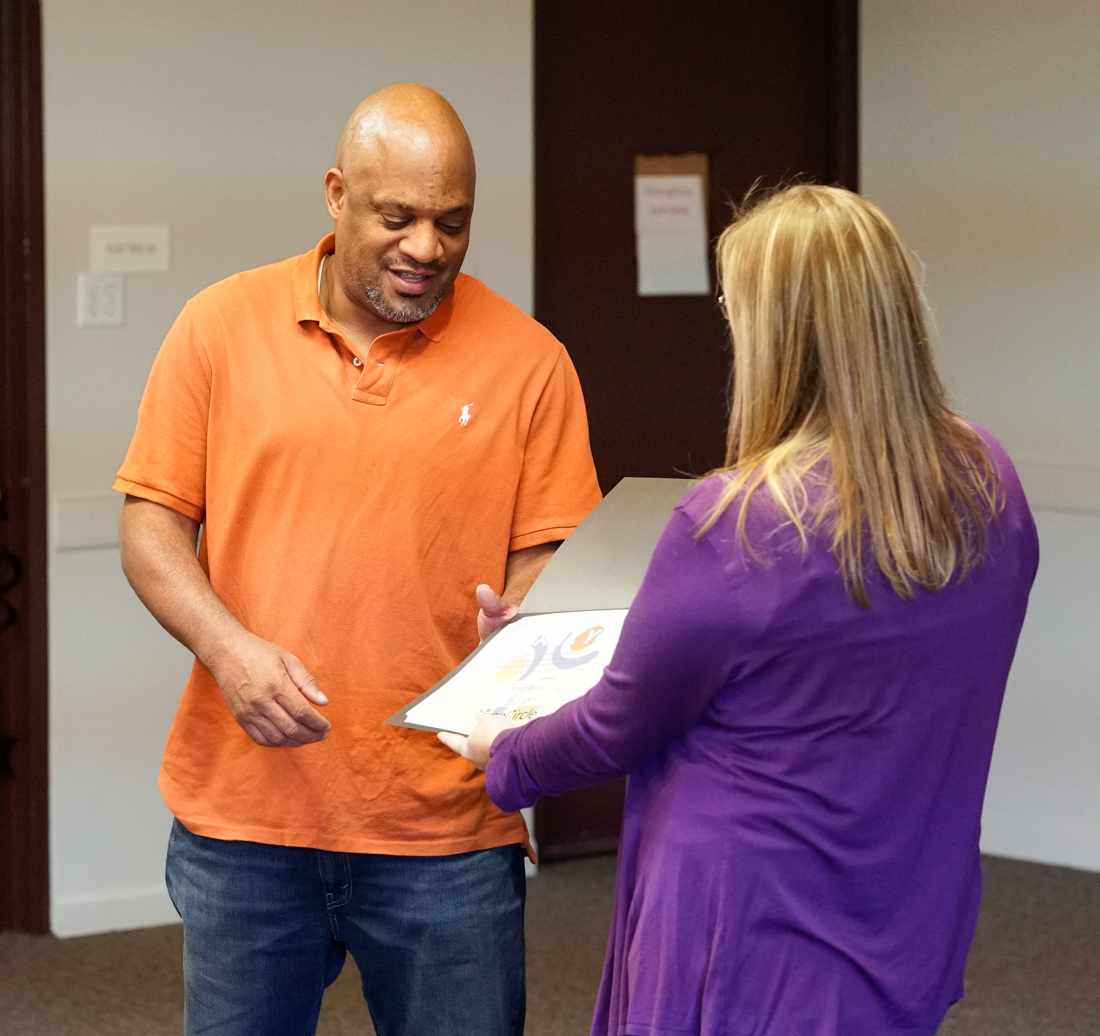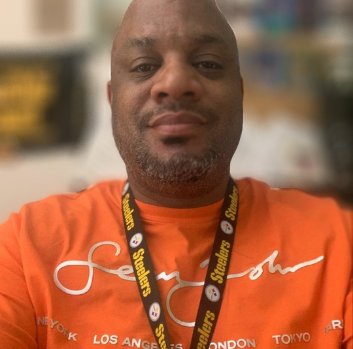By Cindy Adams
Ask the local police force — when there is a child in crisis, Karon Booker has a way of working wonders. They experienced his calm and fluid approach after spending significant time trying to convince a runaway child to leave a potentially dangerous situation and return to his foster parents. Coaxing did not work, and the police did not want to resort to handcuffs. Instead, they called Karon. Within 30 seconds of Karon walking onto the porch, the child was leaving with him.
"We went and grabbed dinner and talked about the situation," Karon said. "It’s just about relationship."
Karon should know. He has 20+ years of more than full-time experience building relationships. He serves as a therapeutic mentor for enCircle, providing mentoring sessions to foster youth and working closely with foster families on challenging situations. By being a resource and outlet, he helps retain permanency for foster kids. And he has done it sacrificially for a long time.
Karon works 40 hours per week for District 19 Community Service Board as a case manager and THEN he works 30+ hours per week for enCircle. He dedicates his life to youth who need extra support.
"For some of the young men, I am the first healthy male figure in their lives," Karon explained. "Sometimes it takes a while for them to realize that I am there to help them and not destroy them. Once they start to trust me, they will come to me with the issues they are facing."
Karon says he sees the immediate impact with some kids but, for most, it takes time. He is patient.
"It’s remarkable to have a mentor for 20 years," said Amy Barbour, Director of Treatment Foster Care for enCircle. "Most mentors only last a couple of years and are very part-time. Karon works the equivalent of two full-time jobs to help advance youth and families. He is truly dedicated and committed."

Children in treatment foster care are typically older and need more intervention to heal from loss, abuse, and neglect. They have likely been in foster care for a long time and have behavioral challenges, developmental/emotional delays or maybe medically fragile. Karon helps these kids develop goals and objectives, improve educational skills, build social confidence, manage anger issues, enhance communication, and negotiate daily living tasks — he meets them where they are and starts building.
"He’ll often do fun things with the kids, but you can bet he has a learning experience built into it," explained Amy. "They may go buy an ice cream cone with the kid’s allowance and discuss budget as they go."
Karon describes his work simply: "I am just helping them walk through this difficult thing we call life."
He recalls one family he worked with for a couple of years. The parents were struggling, and it was causing challenges in the family. The twin foster kids were likely going back into the system. Karon brought perspective to the situation.
"I helped mom and dad recognize that these kids required different parenting skills than their two older biological kids because the twins came with trauma and abuse in their background," Karon said. "When I took the kids out to give the parents a break, it was an opportunity for them to process with me everything that was happening."
Today the kids are grown, and the family remains intact.
Karon says what keeps him coming back is the simple fact that kids always need help.
"When I just can’t do it anymore, I’ll stop," he said. "But I’m doing o.k."


